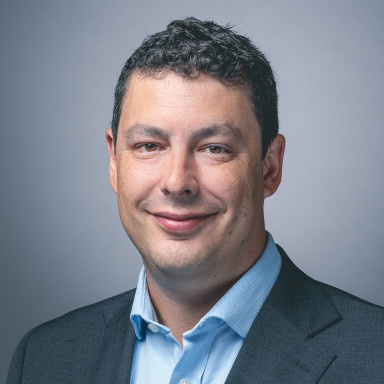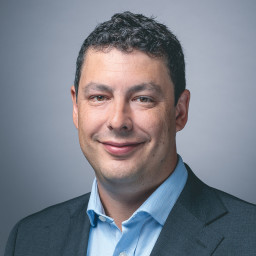BlackRock has been managing index portfolios since 1971
This fund provides a low-cost option for accessing multiple international markets through one investment
The fund has a diversified mix of investments including shares, bonds, property and cash
This fund is not on our Wealth Shortlist of funds chosen by our analysts for their long-term performance potential
How it fits in a portfolio
The BlackRock Consensus 85 fund offers a low-cost solution for providing similar performance of the average pension fund in the UK. The fund is ‘multi-asset’ meaning it invests in a combination of shares, bonds, property and cash. This allows investors access to a variety of international markets with one investment. While the fund offers good global diversification, it has a larger weighting in companies from the US and UK.
A mixture of assets spreads investment risk, which could limit up and down swings in performance over the longer term although there are no guarantees. The fund could help provide a starting point for a diversified investment portfolio.
However, it doesn’t feature on the Wealth Shortlist as we currently have conviction in our existing multi-asset funds and believe there are alternatives for passive global investment.
Manager
Steve Walker is responsible for Europe, Middle East and Africa Index Asset Allocation at BlackRock and leads the team that manage the Consensus 85 fund. Walker joined BlackRock in 2009 and previously worked as a portfolio manager for Barclays Global Investors before the two firms merged together.
BlackRock’s global approach allows the portfolio managers to work closely with other teams across the world, helping drive more efficient management of their funds. This should enable them to provide simple and efficient tracking options for investors.
Process
The investment team uses an asset allocation strategy based on the Lipper ABI Mixed Investment 40-85% Shares Pension Sector. Each month Lipper, an investment data provider, takes a survey on what investments are held in the average pension fund across the UK. The results of that survey provide a starting point for BlackRock to choose which passive investments to hold in the fund. Passive investments aim to track the performance of a particular market.
The number 85 refers to the maximum percentage of the fund that can be invested in shares. In practice the fund typically holds less than this. When there’s a reduction in the proportion of shares held, the team increases its weighting in other investments.
The survey shows a proportion of pension scheme assets are invested in non-conventional investments, like private equity, hedge funds or commodities. BlackRock believes it’s difficult to invest in these using passive investments, so the team avoids them and reallocates the money to other sectors.
The biggest allocations within the fund at the end of December 2023 were to company shares from the UK, US and Europe, with 25.2%, 21.7% and 13.7% invested in those regions respectively. These were also the largest positions in the fund a year ago, with some small changes to the amount invested in each. As positioning is based on the Lipper survey, we do not expect these weightings to change a lot over the short term.
A proportion of this fund also invests in emerging markets, smaller companies and high yield bonds, all of which are higher risk.
Some of the underlying investments are currently being replaced with those with a greater focus on Environmental, Social and Governance (ESG) factors. This could improve the focus on sustainability.
These underlying funds also have tracking error targets, which measure how closely they’re tracking their benchmark. These are monitored by BlackRock on a daily and monthly basis to ensure each fund is being run efficiently.
The fund can also lend some of its investments to others in exchange for a fee in a process known as stock lending. This helps to keep costs lower but can add risk. Since BlackRock’s lending program started in 1981, only three borrowers with active loans have defaulted. In each case, BlackRock was able to repurchase every security out on loan with collateral on hand and without any losses to their clients.
Culture
BlackRock is currently the largest asset manager in the world. The company was founded in 1988 by eight partners including current CEO Larry Fink and is known for both active and passive strategies across the world. Employees at BlackRock are encouraged to hold shares in the company so that they are engaged with helping the company perform well and grow. The iShares brand represents BlackRock's family of index tracking and exchange-traded funds.
As one of the world's largest asset managers, and with lots of resource and knowledge under its belt, BlackRock aims to drive further development in this part of the investment market. Being such a large player in the index tracking arena gives BlackRock unique access to the marketplace, which can help reduce trading costs.
The team running this fund also works closely with various equity and risk departments across the business. We believe this adds good support and challenge on how to run the fund effectively.
ESG Integration
BlackRock has offered ESG-focused funds for several years, including through its iShares range of passive products. However, it only made a company-wide commitment to ESG in January 2020. Following that announcement, the company promised to expand its range of ESG-focused ETFs, screen some thermal coal companies from its actively managed funds and require all fund managers to consider ESG risks.
BlackRock’s Investment Stewardship Team aims to vote at 100% of shareholder meetings where it has the authority to do so, meaning they vote at around 17,000 meetings on 165,000 proposals each year. The Investment Stewardship team engages with companies, in conjunction with fund managers, and the results of proxy votes can be found on the BlackRock website’s ‘proxy voting search’ function.
The firm has courted controversy in recent years for failing to put its significant weight behind shareholder resolutions aimed at tackling climate change. It responded by committing to be more transparent on its voting activity and providing rationales for key votes.
BlackRock also raised concerns in 2022 when it suggested it will likely back fewer shareholder proposals based on environmental and social issues in the coming year, than it had in the previous. This was based on their view that shareholder resolutions are increasingly inconsistent with investors’ financial interests. We contacted BlackRock to understand their views at the time and will continue to monitor how their approach evolves.
The BlackRock Consensus 85 fund now integrates building blocks for the shares portion of the fund that focus on companies with better ESG credentials. This includes screening companies that are considered sin stocks like tobacco or weapons and upweighting those that score better on different ESG metrics.
Cost
The fund has an ongoing annual fund charge of 0.22%, but a discount of 0.13% is available for HL investors, which reduces the charge to 0.09%. The HL platform charge of up to 0.45% per annum also applies.
The fund discount is achieved through a loyalty bonus, which could be subject to tax if held outside of an ISA or SIPP.
Performance
The fund has performed similarly to the IA Mixed Investment 40-85% Shares sector since its launch in August 2005. Over this time, it’s grown 199.79% versus 165.05%* for the sector. While it has done well, the aim of this fund is not to explicitly outperform the sector, but to perform similarly to it. While this sector isn’t exactly the same as the Lipper ABI sector that the fund bases its positioning on, the two have performed similarly in the past.
The three biggest underlying passive funds as at the end of December 2023 accounted for 60.6% of the overall portfolio. This means they should have a larger impact on performance compared with smaller investments.
Over the last year the BlackRock Consensus 85 fund has returned 10.92% versus 8.12% for the sector. The three largest holdings in the fund provided the largest positive contribution to performance during 2023. While most assets added value, the investments in bonds provided the smallest gain overall.
Global markets continue to grapple with high inflation and interest rate increases during 2023. However as inflation reduced and central banks hinted at no further interest rate increases towards the year end, markets rallied strongly in November and December.
A glance at the five-year performance table below shows in some years the fund has performed more in line with the mixed investment sector than others. How closely the fund matches the sector is primarily down to how the team decide to split the fund across the different investment sectors. Remember, past performance isn’t a guide to future returns.
Annual percentage growth
Dec 18 - Dec 19 | Dec 19 - Dec 20 | Dec 20 - Dec 21 | Dec 21 - Dec 22 | Dec 22 - Dec 23 | |
|---|---|---|---|---|---|
16.15% | 4.28% | 12.78% | -7.35% | 10.92% | |
IA Mixed Investment 40-85% Shares | 15.96% | 5.22% | 11.17% | -10.06% | 8.12% |

